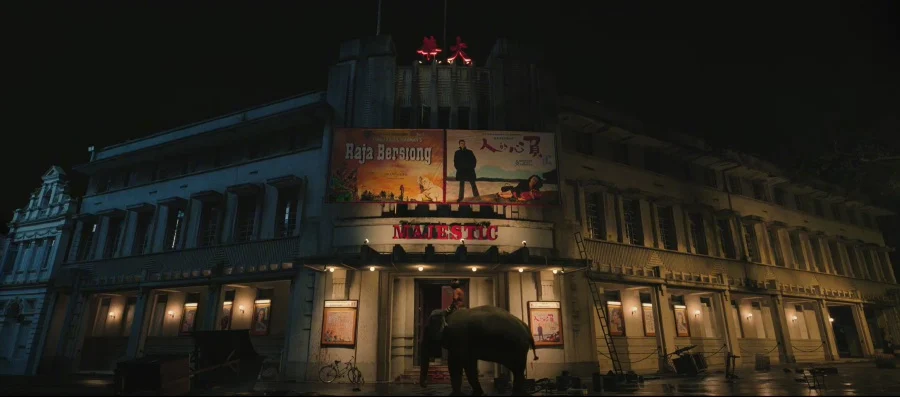‘SNOW in Midsummer’ is an ode to those who went through the May 13, 1969 chapter of our country’s history. And how the survivors are still dealing with the aftermath in 2018.
A warning — the ending is heart-breaking.
This Chong Keat Aun offering is told through different Chinese dialects, and Bahasa Malaysia, so the subtitles help a lot!
The first part is about those early post-Merdeka days, with a Chinese opera troupe performing ‘The Injustice to Dou E’, or ‘Snow in June’, at the end of a street. The opera is about the unjust execution of an innocent Dou E, a child bride.
The street life — with bustling stalls, government officials going around for permits to hold shows or food stalls, and people going about their daily lives — is all jolted when mayhem starts.
A girl, Ah Eng (played by Lim Koet Yenn), and her mother (Pauline Tan) are at the opera, and have to take cover backstage during the riots. The father (Peter Yu) and son Yeow (Teoh Wei Hern) leave them there to see a movie at the Majestic Theatre. The family is never to be reunited.
You don’t see violence; you see it through the faces of the main characters like Dou E (played brilliantly by Pearlly Chua). You hear it through the screams of panic, sounds of gunfire, and shouting.
There are scenes from ‘Raja Bersiong’, with Tun Sri Lanang on an elephant walking past the Majestic Theatre in Jalan Pudu. You need to know some Malaysian history, some Sejarah Melayu, to make sense of the use of metaphors such as fangs and a thirst for blood, and mythological stories.
The tougher emotional segment comes when the second part starts, in 2018, with now an older Ah Eng (Wan Fang) married and living in Penang.
After reading a newspaper article about a soon-to-be demolished ‘513 cemetery’, Eng leaves home for Kuala Lumpur. It’s the anniversary of the riots, and 513 is how many Chinese refer to the dreadful episode.
Ah Eng wants to find the graves of her father and brother, just as her mother tried to do, even though the victims were in mostly unmarked graves. “Unknown Chinese” read the tombstones.
While the 1969 riots were shown through the lens of the survivors, the mourning of survivors is so very personal with close-ups. The opera troupe tries to perform at the site, but bureaucracy is again heartless.
At the graveyard somewhere in Sungai Buloh’s former leper colony, an excavator drills on as Ah Eng sobs beside Dou E, surrounded by the tombstones.
‘Snow in Midsummer’ is about grief, and even a lament about loss and trauma.
The movie has a meditative feel, with Chinese opera music to punctuate the important moments.
A verse from a ‘mak yong’ performance played hauntingly as the credits rolled.
Such a heart-breaking time in our collective history.
I don’t think many Malaysians will watch this film, in all honesty. Which is a real shame.

